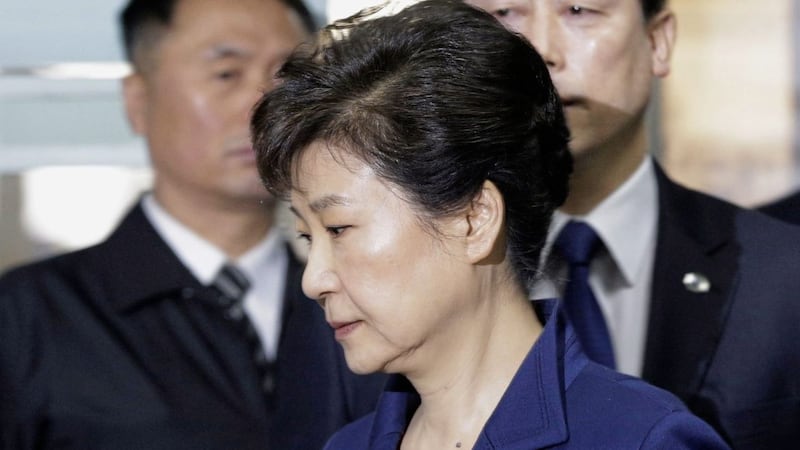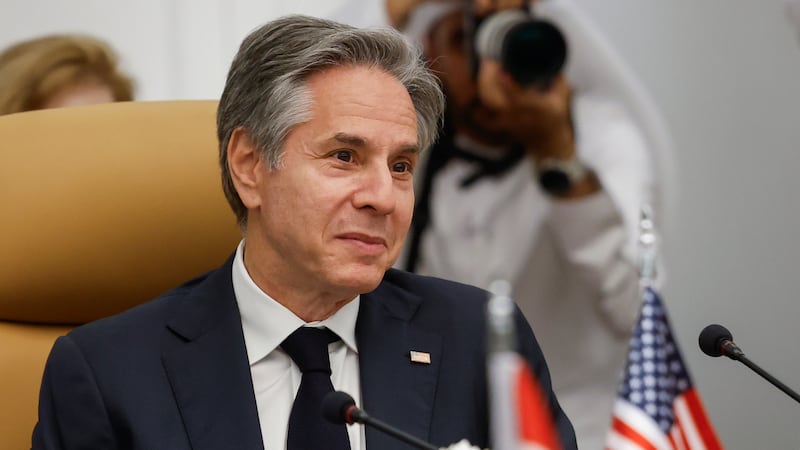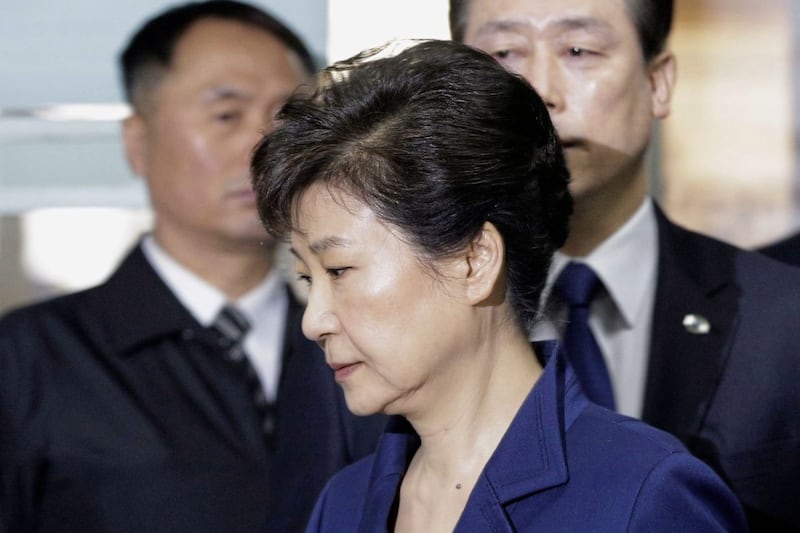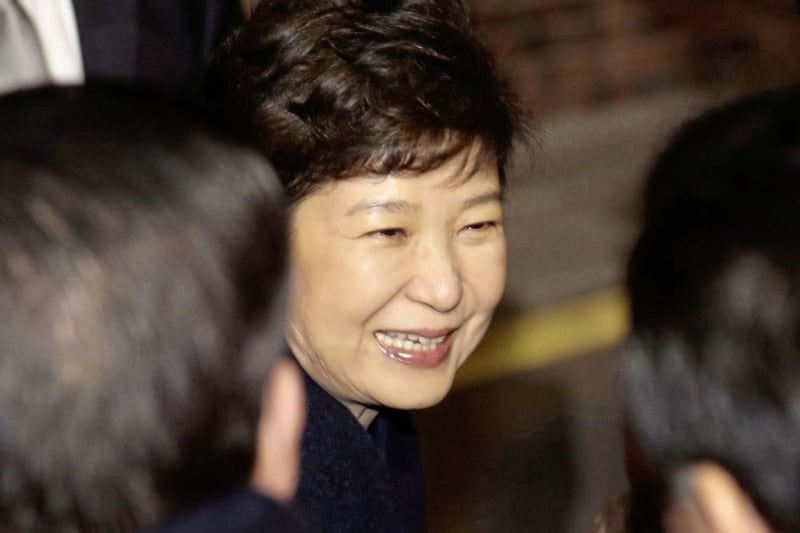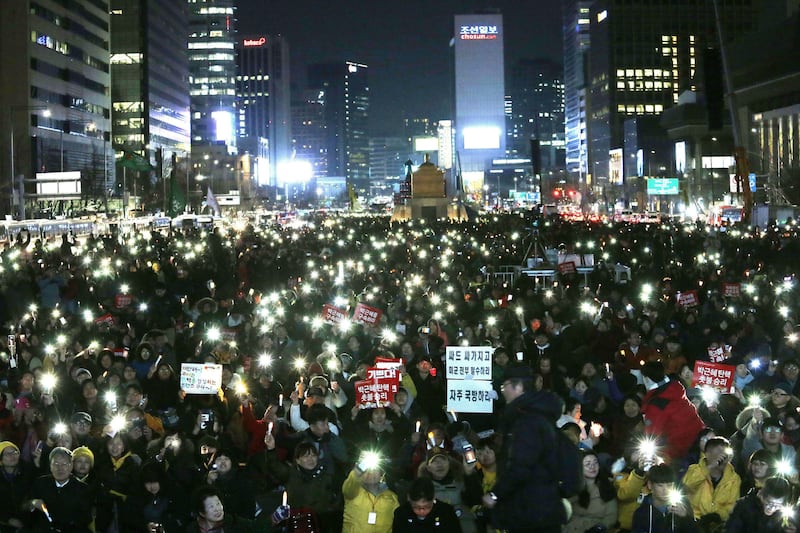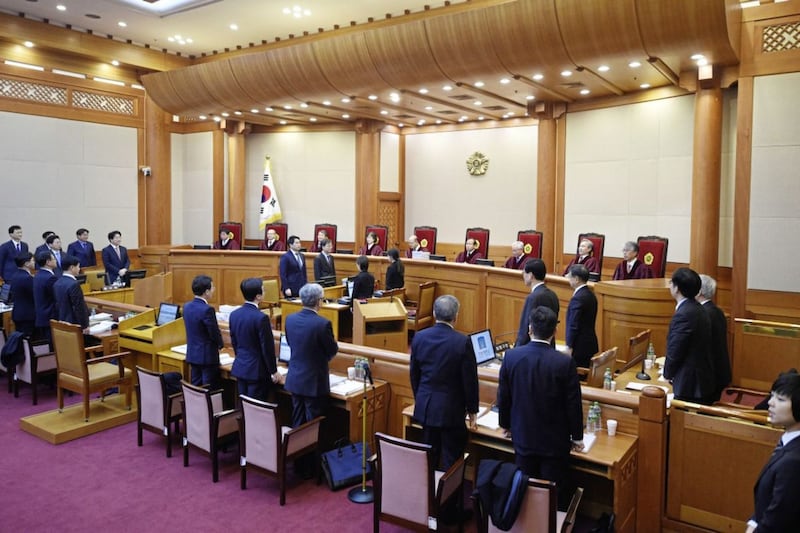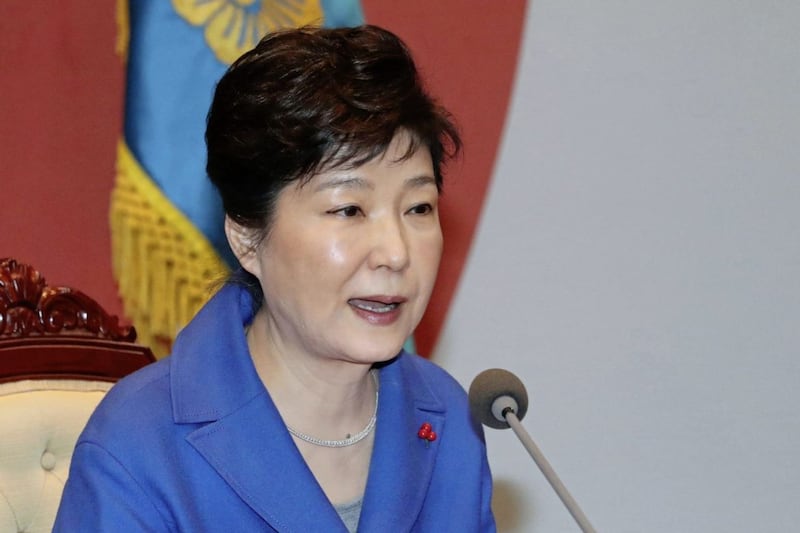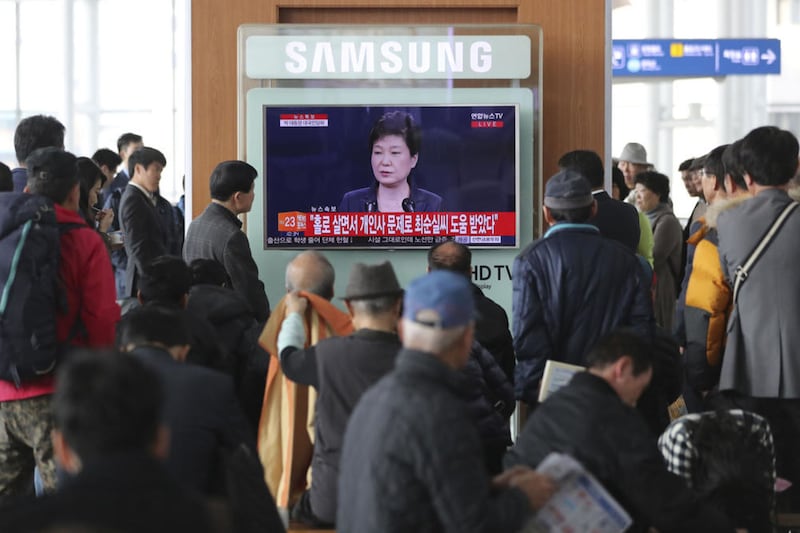SOUTH Korea's ex-president Park Geun-hye has left court visibly fatigued after a nearly nine-hour hearing by the judge who will decide if she should be arrested over the corruption allegations that have already toppled her from power.
On live television and lit by a barrage of camera flashes, Ms Park did not speak as she exited the Seoul Central District Court building before heading to a prosecutors' office where she will be held until the court determines whether to approve her arrest.
If the court rejects the arrest request, prosecutors can still indict and charge her.
If the court approves the arrest warrant requested by prosecutors, Ms Park will be sent to a detention facility immediately as prosecutors can detain her for up to 20 days before laying formal charges.
Prosecutors accuse Ms Park of colluding with a confidante to extort from big businesses, take a bribe from one of the companies and commit other wrongdoing.
The allegations prompted millions of South Koreans to protest in the streets every weekend for months before the Constitutional Court ruled on March 10 to remove her.
Ms Park's presidential powers had already been suspended after parliament impeached her in December.
It was a dramatic setback to Ms Park, South Korea's first female president who rose to power four years ago amid conservatives' nostalgia for her late dictator father who is credited by supporters for pulling a war-torn country out of poverty in the 1960s-70s.
Liberal critics revile her father as a ruthless leader who tortured and imprisoned his opponents.
Earlier on Thursday, hundreds of her supporters, mostly elderly conservatives, gathered near her Seoul home, waving national flags and chanting slogans when she left for the court.
Prosecutors say they want to arrest Ms Park because her alleged crimes are "grave" and because other suspects involved in the scandal, including her confidante Choi Soo-sil, have already been arrested.
In the coming weeks, prosecutors are expected to formally charge Ms Park with extortion, bribery and abuse of power.
A bribery conviction alone is punishable by up to life in prison in South Korea.
Ms Park and Choi deny most of the allegations.
Ms Park has said she only let Choi edit some of her presidential speeches and got her help on "public relations" issues.
Choi made similar statements.
The women, both in their sixties, have been friends for 40 years.
Ms Park once described Choi as someone who helped her when she had "difficulties", an apparent reference to her parents' assassinations in the 1970s.
Park's father Chung-hee was gunned down by his own intelligence chief in 1979, five years after his wife was killed in an assassination attempt that targeted him.
Park Geun-hye served as first lady after her mother's death.
While in office, Park Geun-hye had refused to meet with prosecutors, citing a law that gives a leader immunity from prosecution except for grave crimes such as treason.
South Korea is to hold an election in May to choose Ms Park's successor.
